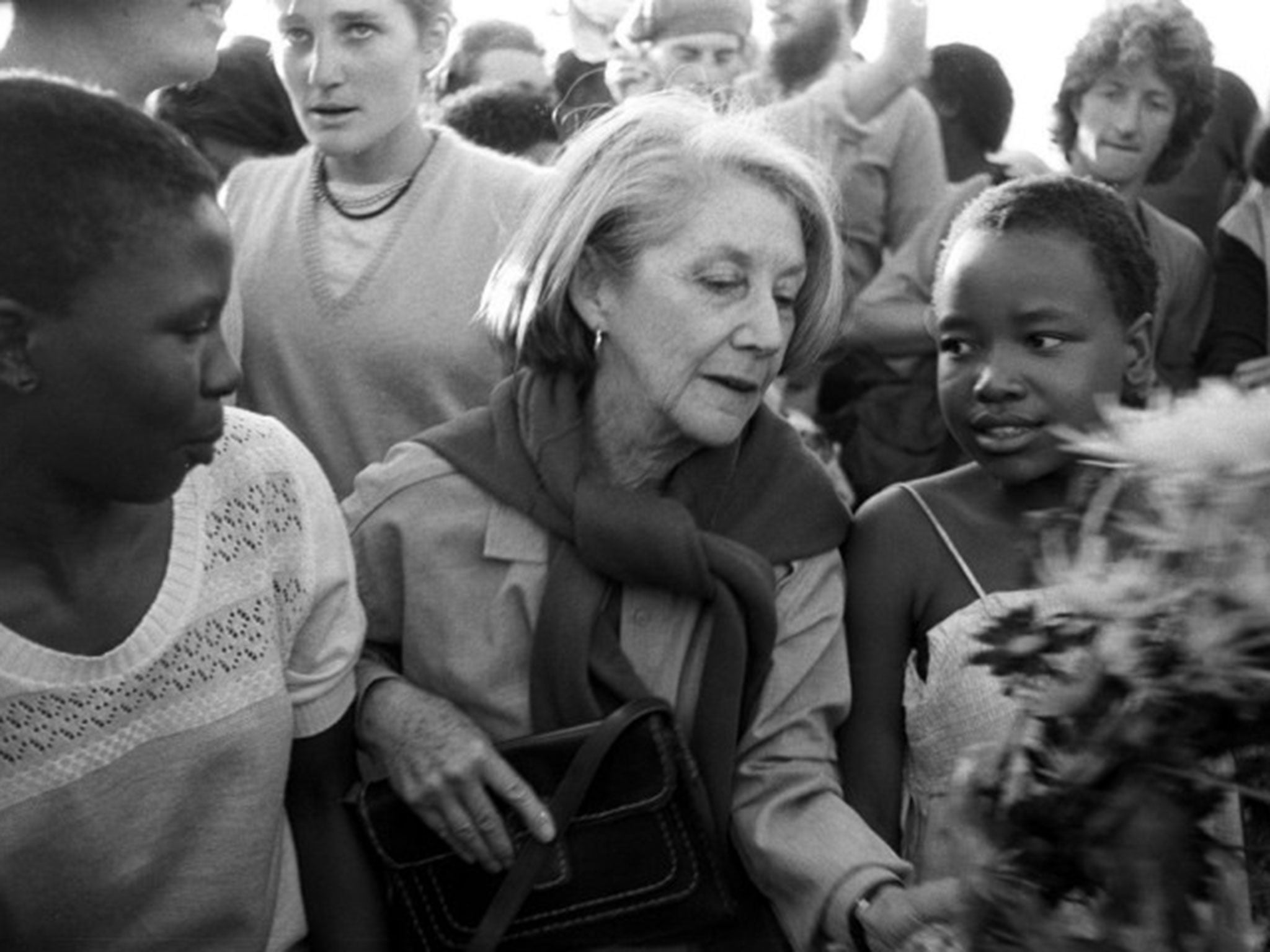Nadime Gordimer appreciation: She was a champion of freedom

Your support helps us to tell the story
From reproductive rights to climate change to Big Tech, The Independent is on the ground when the story is developing. Whether it's investigating the financials of Elon Musk's pro-Trump PAC or producing our latest documentary, 'The A Word', which shines a light on the American women fighting for reproductive rights, we know how important it is to parse out the facts from the messaging.
At such a critical moment in US history, we need reporters on the ground. Your donation allows us to keep sending journalists to speak to both sides of the story.
The Independent is trusted by Americans across the entire political spectrum. And unlike many other quality news outlets, we choose not to lock Americans out of our reporting and analysis with paywalls. We believe quality journalism should be available to everyone, paid for by those who can afford it.
Your support makes all the difference.Nadine Gordimer was a writer who, above all, wrote within the precincts of the heart. Gordimer’s works not only had the ring of truth, but were the truth – a writer’s truth – hewn from the fabric of her own life and the life she saw around her.
In many ways, she made a pact with that writer’s life: that it would be as much as she could possibly make it – uncensored. She refused to be longlisted for the Orange Prize because it admits only women’s work. To have been on that list went against everything she stood for.
Her criticism of some of the decisions of Thabo Mbeki and Jacob Zuma may have shocked many, because she had been such a champion of a post-apartheid South Africa. But what she was a champion of was freedom.
She wrote of freedom in love and freedom in politics and for her there was no division. Her books, grounded in the lives that ordinary people could recognise, could understand, could relate to, abounded with great acts of courage and love.
Occasion for Loving tells the tale of a white woman in love with a black artist, a shambolic man. She loves his chaos as opposed to the order of her white husband, a kind of symbol not only of apartheid itself, but of the status quo.
My own life and growing up was caught up in the turbulence and the awful beauty of America in the 1960s and 1970s, and so Gordimer’s work passed me by then. I was living another version of Gordimer’s great adventure towards justice.
And yet, it is not in the great themes that she lives for me, and will continue to live through the ages.
It is her writer’s eye – its unflinching precision; her great compassion, her heart, and her consistency. Consistency in that she saw the fight against HIV/Aids and apartheid as essentially battles for human dignity, for humanity itself.
Nadine Gordimer could battle both aspects of the post-apartheid South African government and the apartheid one. Not because they were the same thing, but because they limited human capacity.
Nadine Gordimer was a “guerrilla of the imagination”, as the late Seamus Heaney called her. “This is the creature that has never been,” she writes in Burger’s Daughter. This is true of Nadine Gordimer, too.
Bonnie Greer is a writer and broadcaster
Join our commenting forum
Join thought-provoking conversations, follow other Independent readers and see their replies
Comments